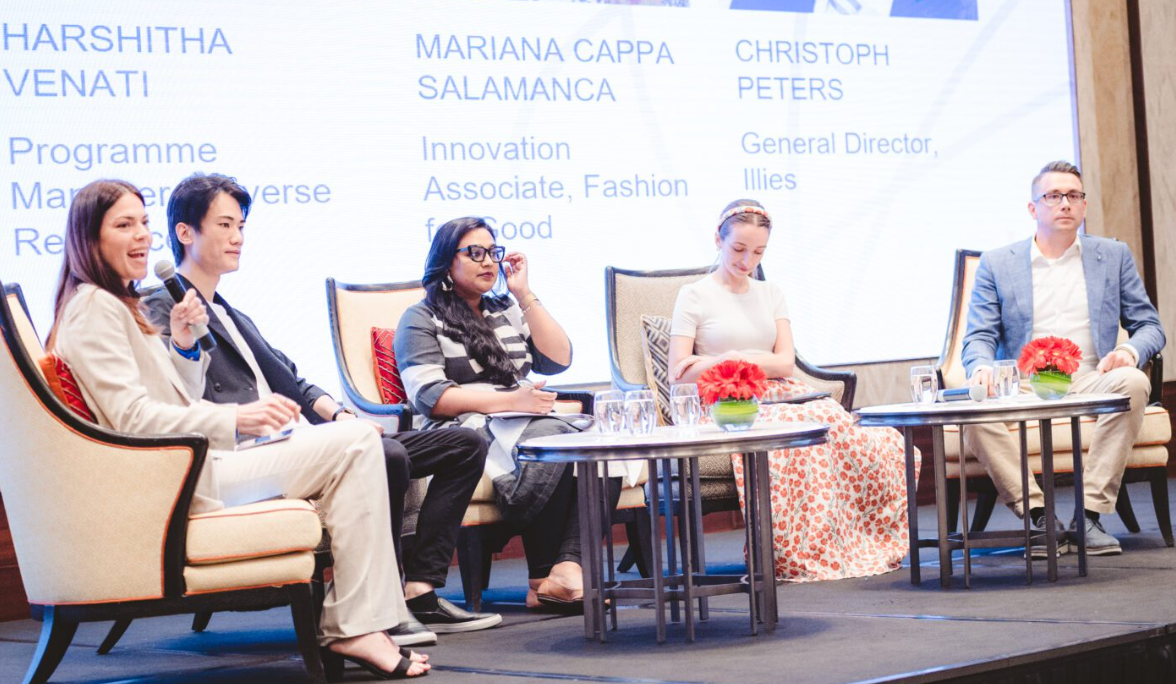
Global Fashion Agenda (GFA), Deutsche Gesellschaft für Internationale Zusammenarbeit (GIZ), and Responsible Business Hub hosted by EuroCham organised a gathering of over 100 experts and stakeholders last month.
The event, titled: “Textile Waste Opportunities for Circular Textiles, Garments, and Footwear in Cambodia,” served as a platform for robust discussions on the current state of textile waste in the country and charting the path towards a circular future.
The event marked the start of an initiative called “Circular Fashion Partnership Cambodia,” aimed at establishing circular systems in Cambodia. It will begin by supporting the pilot project which will focus on the proper sorting and recycling of textile waste, diverting it from landfills and incineration.
GFA and GIZ are engaging stakeholders to establish the Circular Fashion Partnership Cambodia, as an integral part of the Global Circular Fashion Forum (GCFF). The aim is to accelerate and scale the recycling of post-industrial textile waste in textile manufacturing countries, thereby promoting local action. The event garnered significant participation from representatives of manufacturers, brands, recyclers, recycling technologies, textile waste handlers, and government officials.
According to GFA, Cambodia’s textile, garment, and footwear industry generates approximately 140,000 tonnes of textile waste each year, most of which undergoes unregulated downcycling, and incineration, or ends up in landfills, which have detrimental effects on the environment and population.
Acknowledging this issue, speakers, including Soem Nara, under-secretary of State at the Ministry of Industry, Science, Technology, and Innovation, and, Pak Sokharavuth, under-secretary of State at the Ministry of Environment, Cambodia, shared insights on recycling technology dissemination, best practices, legislation, waste segregation, data management, and social considerations for transitioning to circularity.

US Tariffs are shifting - will you react or anticipate?
Don’t let policy changes catch you off guard. Stay proactive with real-time data and expert analysis.
By GlobalDataDr. Günter Riethmacher, country director of GIZ Cambodia, highlighted the challenges hindering the recycling of post-industrial textile waste but expressed optimism that the pilot project implemented by GIZ and GFA, under the Circular Fashion Partnership, will provide viable solutions.
He said: “The pilot project will minimise the challenges and demonstrate that better solutions are feasible by bringing together all stakeholders along the value chain. Addressing the textile waste will become an increasingly important sustainability topic for the entire sector.”
The Responsible Business Hub, hosted by EuroCham, added: “Responsible business is intrinsically linked to sustainability and circularity.” The hub voiced its full support for initiatives aimed at fabric waste recycling within Cambodia, highlighting the country’s mitigation strategy and the significance of a centralised recycling facility for the garment sector. The Responsible Business Hub pledged to collaborate with relevant stakeholders and government bodies to ensure the successful implementation of the project in collaboration with the private sector.
A youth-led Cambodian fashion show was organised during the event, showcasing upcycled designs, and the importance of sustainable fashion practices.
Federica Marchionni, CEO of Global Fashion Agenda, expressed enthusiasm for the project, stating the event’s success exemplifies the power of a shared vision. She affirmed their commitment to shaping the Circular Fashion Partnership Cambodia project and the need for domestic sorting infrastructure to capture and valorise valuable post-industrial textile waste.
The Cambodian Development Council also pumped $10m into two garment factories.


